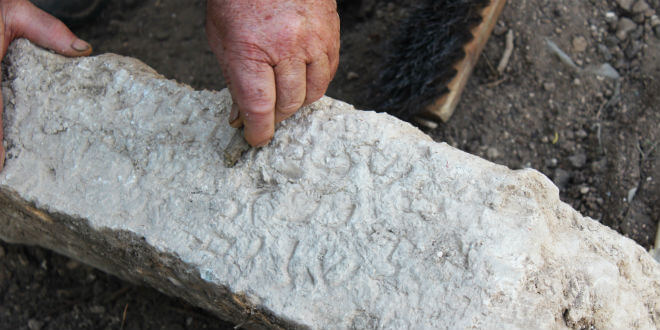Ancient inscriptions in Jesus' language unearthed in northern Israel, indicating Jews lived there ages ago

Ancient inscriptions in Greek and Aramaic, the language Jesus Christ spoke, were recently uncovered in northern Israel, indicating that Jews were already present in the area as early as the first century.
Israeli archaeologists from the Israel Antiquities Authority unearthed three epitaphs or tombstones, which are believed to date back 1,700 years ago, at a cemetery that was used by the ancient Galilean capital city of Zippori.
In a press release, the researchers highlighted the importance of Zippori during the early times.
"Zippori was the first capital of Galilee from the time of the Hasmonean dynasty until the establishment of Tiberias in the first century CE. The city continued to be central and important later on," the archaeologists said, as quoted by CBN.com.
Three words in Jesus' language have so far been decoded from the epitaphs by the discoverers: "the Tiberian," "forever," and "rabbi." Only one Greek word has so far been decoded: "Jose," which is a common Jewish name during the ancient times.
The researchers considered the discovery of these words surprising. For instance, it was the first time the Aramic word "le-olam," which translates to "forever," appeared in Zippori.
Motti Aviam of the Kinneret Institute for Galilean Archaeology, one of the researchers, explained that these findings all the more solidify the fact that Jews thrived in Israel ages ago—contrary to Palestinian Authority's claim that the Holy Land was only "Judaised."
"The Jewish life in the city was rich and diverse as indicated by the numerous ritual baths (miqwe'ot) discovered in the excavation; while at the same time the influence of Roman culture was also quite evident as reflected in the design of the town with its paved streets, colonnaded main roads, theatre and bathhouses," the researchers said.
"The wealth of inscriptions from the cemeteries attests to the strong Jewish presence and the city's social elite in the late Roman period," they added.











